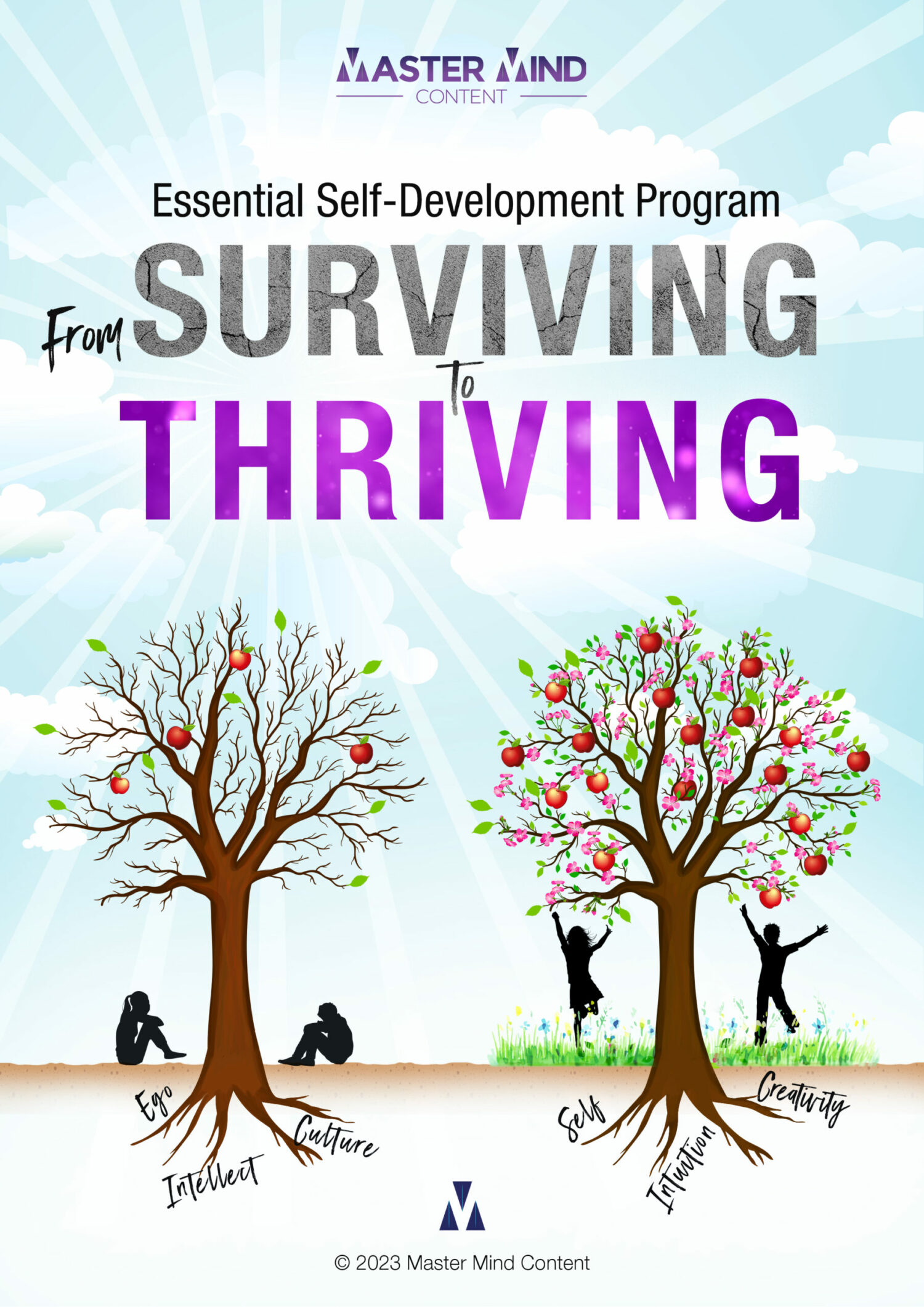
When you lack self-esteem, it can ruin your life in a variety of ways. What’s more, there are a number of reasons why you lack self-esteem, all of which require a different solution.
Once you realise why you lack self-esteem, you are a step closer to healing emotional wounds and upgrading subconscious programs.
Nurturing self-esteem is crucial for overall mental and emotional well-being. It plays a significant role in shaping various aspects of a person’s life, impacting relationships, achievements, and positive mental health.
Individuals with healthy self-esteem often exhibit better emotional regulation. They are more capable of managing and expressing their emotions in a constructive manner.
Higher degrees of emotional intelligence empower you to form and maintain healthy relationships in all aspects of life. Individuals with a positive self-image are more likely to engage in supportive and mutually beneficial relationships.
Subsequently, nurturing self-esteem contributes to increased happiness and life satisfaction. Individuals who appreciate and value themselves are more likely to lead fulfilling lives.

On the flip side, when you lack self-esteem, you generally feel increased stress levels that you will lose the relationships you do have or worry that you’re not achieving the standards your boss expects of you in your job.
Other typical symptoms that indicate you have low self-esteem include questioning whether you fit in, worrying about whether a person likes you, having paranoid thoughts about what people think of you and fretting over new challenges.
Self-esteem is your sense of self-worth and plays a central role in how you experience life. How much you value yourself has a direct correlation with your capacity to pursue goals and the quality of your relationships.
For example, self-worth can determine how your friends and lovers treat you and how you interact with them. But also how you treat them. [1] Thus the value you place on yourself determines how you nurture relationships and create meaningful bonds.
A negative relationship with yourself can damage your family and intimate relationships, your career prospects, and your overall satisfaction with your life. [2] People who have a low sense of self-worth tend to have a hard time forging close and meaningful relationships.
The definition of self-esteem given in psychology is “the ability to form an identity and then attach a value to it.” [3] So if you have low self-worth and attach a high value to a friendship or relationship, it’s more likely to increase your desire to hold on to it.
You can apply the same reasoning to all aspects of your life. The self-development guru Jim Rohn said one of the most important lessons he learnt was to ask how much is something worth rather than how much it costs.
The answer is, how much is something worth to you? What value does it offer to the quality of your life?
How you attach value to yourself is largely determined by your perceived characteristics and competencies. People who lack self-esteem typically deny themselves opportunities to pursue goals they are worthy of on the basis that they do not feel as though they are good enough.

Therefore, how you evaluate yourself plays a central role in how you experience life. The problem some people have is that how you perceive yourself does not always reflect how you actually are or the value you bring to a relationship or job role. [4]
This can cause all sorts of problems for individuals with low self-esteem. The types of problems you can expect to encounter can be identified by which archetype self-esteem surfaces.
Self-esteem surfaces in four archetypes. You can identify the archetype by the nature in which low self-esteem appears for you.
If you possess the unhealthy qualities of the wounded Caretaker, your lack of self-worth originated because you did not form strong emotional bonds with your father. To get the love, attention and recognition you craved from your father, you adopted maternal values and became all-nurturing, all-giving and all-loving.
A father’s role in the family unit is to teach the child discipline, values and how to effectively engage and interact with the world. This is necessary for developing competencies and laying the foundations to build a stable inner structure.
When the relationship between father and child is not there, the child develops a subconscious program that you are not worthy of love and attention. Your presence and your achievements are not recognised.
The consequence of this is a lack of emotional security and the belief that you have to do things for other people to be recognised. You de-value the value you bring to a relationship and may even lose all sense of dignity by engaging in degrading acts just so other people will respect you.
A lack of self-respect is self-neglect.

It’s not unusual for a wounded Caretaker personality with low self-esteem to be manipulated by others. People will take advantage of your good nature.
Typical symptoms are:
People who are dominated by the wounded Hero tend to lack self-esteem due to a string of perceived failures. This can happen if you have an inner critic that prompts you to focus on the things you can’t do rather than all the things you are good at.
Thought-Provoking Quote
“A legal secretary found that her critic often used the word “screw- up. When she thought about it, she realized that “screw- up” stood for a list of negative qualities. It meant someone who was incompetent, unliked, a taker of foolish risks, a person (like her father) who would run away from problems. When the critic said “screw- up,” she firmly believed that she was all of these things.”
~ Matthew McKay & Patrick Fanning, Self-Esteem: A Proven Program of Cognitive Techniques for Assessing, Improving and Maintaining Your Self-Esteem [5]
The Hero’s perceived lack of competencies to engage with the world is largely due to being molly-coddled as a child. When children are not encouraged to learn to do things for themselves, they do not mature with a willingness to face challenges and learn new things.
As you mature and become confronted with challenges, particularly in adolescence, you experience more failures — but never learn how to overcome failure or use mistakes as a prompt to try tackling something with a different strategy. The bane of the Hero is you have no strategy.
It may be the case that you lack self-esteem, and competencies, due to sibling rivalry. Older children who feel left out because they are not getting the same level of attention as the newborn baby can feel unloved and unworthy.
This may also prompt the child to manufacture situations where they need the help of their parents, or they get their parents to do something for them rather than doing it for themselves. This display of ineptitude is a show to inform the parent that they need their parent’s attention.
Sibling rivalry can also have a knock-on effect on the relationship between the older and younger siblings. If the older sibling does not overcome the jealousy, bullying and other non-loving behaviours can occur throughout the childhood of the younger sibling.
Without a protective father figure around to rule the roost, the antagonism felt by the younger sibling would naturally damage your sense of self-esteem.
Low self-esteem in the wounded Hero can also surface in adults who were told they were good for nothing as a child. It could also be the case that you didn’t perform well at school but you are actually intelligent. The school system let you down because you were disengaged. The healthy Hero only surfaces when you engage in life in positive ways.
Individuals with an undeveloped Everyman have a deep insecurity that people will not like them because they are different. This can happen to people who recognise they are different from an early age but want to fit in with a certain group.
However, your strategy to fit in where you don’t belong does not play out too well. What happens is you follow the crowd and adopt the things they like rather than the things you like. You pretend to like the same music, the same TV shows, the same clothes, the same foods. You may like some things but don’t admit that you don’t like the things you don’t like.

By adopting everything everyone else likes, the Everyman does not allow you to become an independent thinker and develop your own identity. As you get older, your self-esteem is eroded even more because you don’t know what you like or who you are. You have become a ghost in a mask but can’t work out why people ignore you.
The Everyman is also status-driven. You believe that material or professional success will make up for the lack of self-esteem and subsequently overwork to impress your superiors. As a result, you risk burnout which can lead to ill health and depression.
Like the Everyman, the Creator’s lack of self-worth stems from a struggle to find acceptance among a group of like-minded individuals. Emotional and/or physical abandonment has programmed you with the belief that you’re not good enough and nobody wants you.
The key difference between the Everyman and the Creator is that the latter avoids situations. Whereas the Everyman tries to fit in by trying to be like everybody else, the Creator has come to accept you are different and has developed some semblance of independence.
However, keeping your distance does not enable you to form close and meaningful relationships. You can appear cold and callous and people start to avoid you like you are avoiding them. Here you see the mirror effect at play. We often experience what we are lacking in ourselves.
The underlying motivation for your avoidant tendencies is that you are harbouring shame and humiliation for being different. Your subconscious program informs you that you don’t fit in because you are different and nobody likes you.

This attitude makes you feel undeserving of love and acceptance. It’s easy to see why the Creator avoids relationships. You are afraid of being humiliated or you do not trust yourself to handle the responsibility of a relationship and will be rejected anyway.
Harbouring a sense that you are not deserving also leads to a fear of success which makes you prone to self-sabotaging relationships and career prospects. If you don’t try at something, you don’t fail — even when you have a yearning to succeed and probably fantasise about it.
Thought-Provoking Quote
“Everybody wants to succeed. It may seem paradoxical, but many people with low self- esteem feel a sense of shame deep down that leads them to avoid success at the same time they are seeking it. They want the good things of life but don’t feel that they deserve them. If they do achieve some success, they fear that it will just set them up for a bigger fall later. They will become prominent targets for other people’s envy. Or others will come to depend on them, and they’ll crumble under the responsibility.”
~ Matthew McKay & Patrick Fanning, Self-Esteem: A Proven Program of Cognitive Techniques for Assessing, Improving and Maintaining Your Self-Esteem [6]
Now you know the causes and the symptoms of low self-esteem, find out how to integrate self-worth with our Strategies for Overcoming Low Self-Esteem which is available in the VIP Members Area for patrons who have signed up for the Essential Self-Development Program.

[1] Self-Esteem Makes Successful Relationships; D Lancer (2016 Psych Central
[3] Matthew McKay & Patrick Fanning, Self-Esteem: A Proven Program of Cognitive Techniques for Assessing, Improving and Maintaining Your Self-Esteem, 4th Ed, p.1 (2016)
[4] Development of self-esteem across the lifespan, Orth & Robins, p.329, (2019
[5] Matthew McKay & Patrick Fanning, Self-Esteem: A Proven Program of Cognitive Techniques for Assessing, Improving and Maintaining Your Self-Esteem, p.19, (2016)
[6] Ibid, p.255
